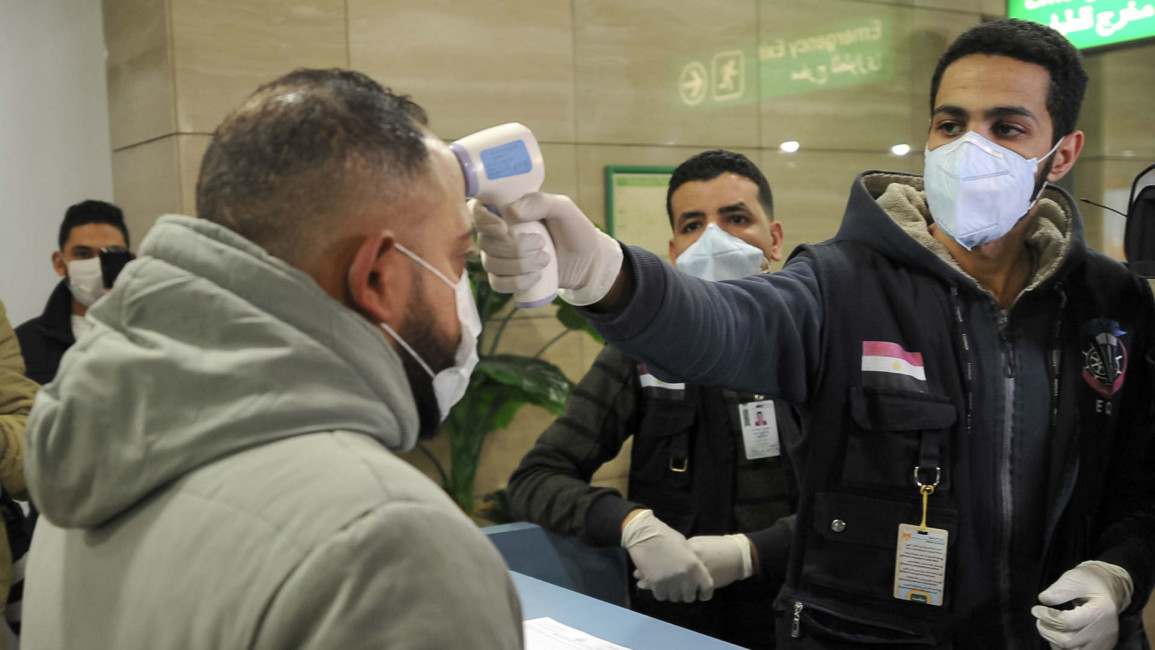Egypt demands apology from Guardian, NYT over study that cast doubt on official coronavirus numbers
Egypt demands apology from Guardian, NYT over study that cast doubt on official coronavirus numbers
Egyptian authorities lashed out at Cairo-based reporters from The Guardian and the New York Times who cited a Canadian study suggesting coronavirus cases in the country are higher than thought.
2 min read
A Canadian study estimated a an outbreak size of over 19,000 cases in Egypt [AFP]
Egyptian authorities on Tuesday demanded an apology from The Guardian and The New York Times over citations of a study estimating a higher number of COVID-19 cases than are reported by the state, according to an official statement.
On Sunday, The Guardian published a report citing a study from the University of Toronto infectious disease specialists, which estimated an outbreak size of 19,310 cases in Egypt, far larger than the less than 200 cases reported by the government.
New York Times Cairo bureau chief Declan Walsh shared the University of Toronto's research on his Twitter account. He later deleted the tweet and issued a clarification on Monday.
|
In a lengthy statement, Egypt's State Information Service (SIS) claimed the study in question contains "incorrect numbers and estimates", deeming the journalists to be "deliberately misleading about a very serious issue".
The agency said Egypt is cooperative and transparent in its reports to the World Health Organisation (WHO).
The SIS announced an accreditation removal for Ruth Michaelson, the Cairo-based The Guardian journalist who authored the Sunday report. The agency also threatened the closure of The Guardian's Cairo office.
"At the moment, there is no suggestion that the statement on our closure is true," Michaelson tweeted on Tuesday. "So let's treat it that way, and keep working."
Michaelson did not immediately respond to The New Arab's emailed request for comment.
Read more: Comment: As coronavirus spreads in Egypt, Sisi puts the truth on lockdown
The SIS also issued a warning to Walsh over his tweets.
"We are troubled that the Egyptian government has issued a warning over a posting that did nothing more than call attention to a medical study," The New York Times told The New Arab in an emailed statement.
"Such actions send a chilling effect at a time when people around the world are relying on impartial, independent journalism for crucial health and safety information," The Times added.
During a Wednesday press conference in Cairo, a WHO official stated that Egypt has 196 confirmed cases of coronavirus out of over 3,015 suspected cases tested.


![President Pezeshkian has denounced Israel's attacks on Lebanon [Getty]](/sites/default/files/styles/image_684x385/public/2173482924.jpeg?h=a5f2f23a&itok=q3evVtko)



 Follow the Middle East's top stories in English at The New Arab on Google News
Follow the Middle East's top stories in English at The New Arab on Google News


